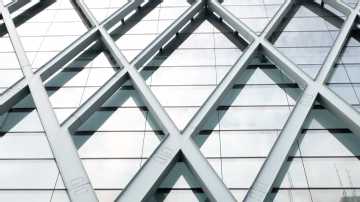We use first and third-party cookies for analytical and statistical purposes and to show you personalised advertisements based on a profile compiled from your browsing habits (e.g. pages visited). For more information, click on our Cookie Policy. You can accept all cookies by pressing 'Accept', you can reject all cookies by pressing 'Reject', or you can customize your choice by pressing 'Manage'.
Importance of a vision for the future.

According to Capital Energy's CFO, previous analysis was overly statistical, as each investment was analysed “with very fixed hypotheses”, because the world was changing “far less quickly”. As she explained, this meant that “you could use the hypothesis that you were currently looking at in 5 years' time”. However, not so many years ago, this method of working gave way to “much dynamic” analysis which considers “a number of scenarios and how likely they are to occur or not” and therefore involves working with “profitability ranges without knowing which of them is actually going to apply”. What's more, as she explains, in order to perform these analyses, a good CFO must have suitable tools that can be used to extract insightful data “both relating to the past and the present”, which can help them to “look ahead to the future”.
In her specific role, heading up the financial department at Capital Energy, she has to envisage what is going to happen “in the next five to ten years” and make decisions based on concepts which “may not even exist at the moment”, while other concepts, such as“ “big data, blockchain or artificial intelligence”, which are much discussed nowadays, are still “up in the air”. In her opinion, this is precisely where the skills of a good CFO come into play, by being able to start working in areas which “are seemingly here, but are not yet fully established”, which very often makes them “catalysts for change”.
Bonafonte believes that a CFO's work is no longer limited to just achieving profitability in traditional investments, but also to ensuring that a project is sustainable in the long term and “does not die”, as, ultimately, everything depends on whether their company can evolve “alongside the sector” and seek out new challenges so that “the company's growth curve does not end up falling off”. To this end, she recognises that “there are now millions of data and even more tools”, developed thanks to digitalisation, which, in her opinion, may overwhelm CFOs, which is why she recommends learning to identify “what is important for your business among the noise”. Only by doing this can you be agile and competitive, in her opinion.
According to Bonafonte, this paradigm shift has been noticeable in relationships with other major players in the sector, at least for Capital Energy. “We are now jointly investing with our providers in order to set up factories or build a new turbine and we give our customers the opportunity to invest in our windfarms”, which is further evidence of how important it is nowadays “to reconsider everything and stop thinking like you were before”. Another example of this is that, very soon, “people are going to be able to produce energy in their homes”, which means that they are going to become each other's competitors. Therefore, the Capital Energy director explains that her way of planning ahead for this is “jointly investing with them and creating tools so that the model is sustainable and everyone can sit within it”.
Finally, when discussing how to make a business sustainable long term, Bonafonte says that it is no longer all about “having money to do things”, but instead is about ensuring that “everyone that you are affecting one way or another gets involved with you and supports you”, as, if not, “you will have a targeted project which will emerge and will then die within a number of years”.


